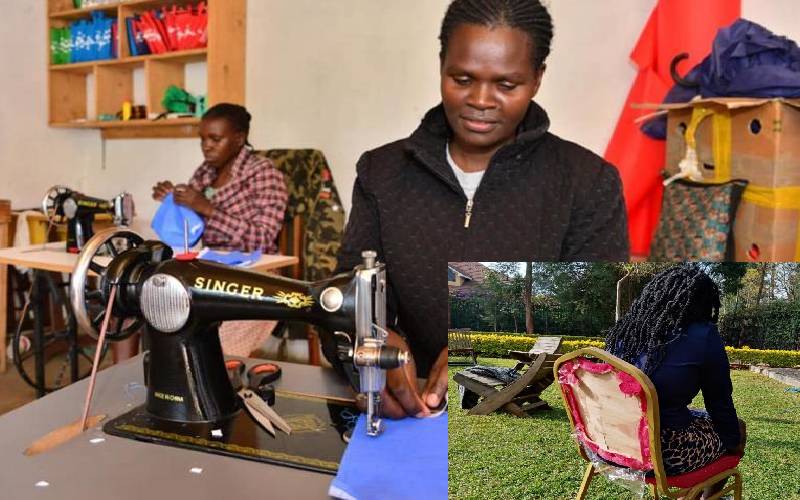×
The Standard e-Paper
Smart Minds Choose Us

Some of the women who have been rescued at the Hope Rescue Centre in Hardy, Karen. INSET: Rose, 20 at the Centre. [Jeckonia Otieno, Standard]
Brenda, 19, and her two children – the younger one barely two – has seen more in life than many older women.